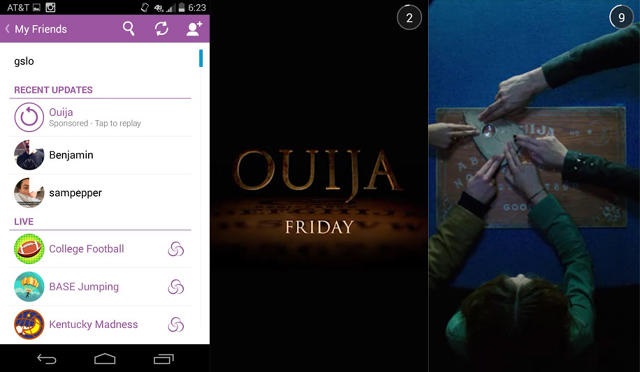Running an ad on Snapchat, the self-destructing messaging service that’s hugely popular with teens, costs a massive $750,000 a day, according to a new report.
Snapchat started showing adverts last October, with Universal’s horror film ‘Ouija’ first to sign up, in a bid to finally make a profit from its hugely popular ephemeral app.
But a new report from AdWeek cited multiple sources claim Snapchat demands $750,000 (£493,000) per ad, despite the fact ads self-destruct like messages at the end of a day.
How SnapChat’s prices compare
To put Snapchat’s pricing into perspective, here’s some typical ad costs for major platforms and events:
• An advert during American Idol costs approximately $475,000 (£313,185)
• A 30-second slot during the Superbowl costs around £4 million (£2.6 million).
• YouTube charges $500,000 (£329,760) a day for a masthead.
• Instagram runs similar Sponsored Posts to Snapchat, with prices ranging from around $350,000 (£230,830) up to $1 million (£659,000) – but that is said to be for a month-long contract.
• Twitter is said to charge per click, known as engagement, at around $2 (£1.30), but Promoted Trends are quoted in the region of $200,000 (£131,880).
• Facebook advertising varies widely based on the audience, budget, how long the adverts will run and if the firm wants to pay per click – but prices start as low as $1 (66p).
The app has been focusing on top brands to buy placements, disclosing audience numbers (with its ‘stories’ apparently drawing tens of millions of viewers a day) in order to land big name clients.
According to one agency executive, the company is looking for “fewer, bigger, better” when it comes to ad partner.
McDonald’s recently pushed its “Love Is Endless” animated commercial to Snapchat.
Universal also appeared to find success as the first ad partner for its ‘Ouija’ film , so much so that it also served a second ad for Dumb and Dumber To.
However, the lack of reporting capabilities on Snapchat, which cannot provide clients with demographic feedback, and the self-destructing nature of the ads is making many marketers think twice before forking over such a large sum, AdWeek reports.

